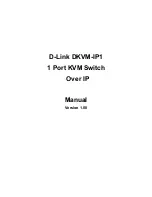
dynamic learning of Layer 3 IP multicast addresses in a directed connected subnet. But it can
send query packets and maintain multicast groups. IGMP Snooping monitors IGMP packets in
the network and can learn multicast MAC address dynamically. Layer 2 static multicast
functionality can be used to configure layer 2 multicast addresses by hand.
This Chapter will only describe Layer 2 static multicast. Please refer to other chapters for other
multicasting services mentioned above.
6.1 Introduction to Layer 2 static multicast
There is a Layer 2 hardware multicast transmission table in the iSpirit 3026 switch, it can be
used for layer 2 multicast transmission in line speed. Multicast MAC address can be added
either through IGMP Snooping dynamic learning or by configuration.
This section includes the following information:
Layer 2 hardware multicast transmission table
Layer 2 multicast MAC address
Layer 2 multicast transmission mode
Layer 2 static multicast and Layer 2 dynamic multicast
1. Layer 2 hardware multicast transmission table
The Layer 2 hardware multicast transmission table is used for layer 2 multicast transmission in
line speed. It has 255 entries, i.e., 255 multicast MAC addresses. Each entry has three
important fields: multicast MAC address, VLAN ID and output ports list, with the index as
multicast MAC address and VLAN ID.
In the table different VLANs (i.e., multiple subnets) can have the same multicast MAC address,
which needs multiple entries. When a Layer 2 multicast flow enters the switch via a port, the
system first searches its multicast MAC address and the VLAN ID it belongs to in the table, if a
matched entry is found, its output ports list will be fetched, and the final output ports list for this
flow will be the fetched list with the input port being removed from it. The output ports list in the
table can have no, one or more output ports.
2. Layer 2 multicast MAC address
Mac address can be categorized as multicast MAC address and unicast MAC address. Multicast
MAC address has the least significant bit of the highest byte being 1, while it’s 0 for unicast, as
shown in Figure6-3. For example, 01:00:00:00:00:01 is multicast, 00:00:00: 00: 00:01 is unicast.
















































